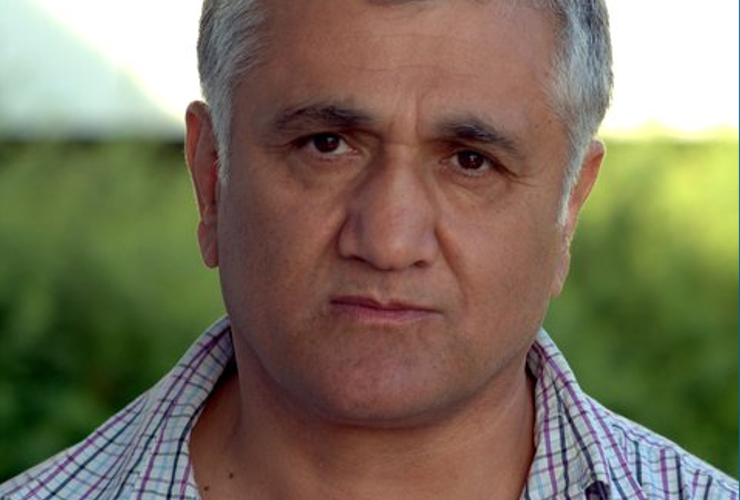Spain should immediately release a dual Turkish-Swedish writer and journalist arrested in Barcelona on an Interpol warrant issued by Turkey, the International Press Institute (IPI) said today, calling it “a troubling new nadir in the Turkish government’s ongoing efforts to criminalise journalism”.
Authorities detained Hamza Yalçin, 59, on Aug. 3 at Barcelona’s airport as he was traveling to London following a holiday in Spain. Turkey reportedly sought his apprehension for insulting President Recep Tayyip Erdoğan and for alleged links to an outlawed leftist group.
The accusations apparently stem from articles in the Turkish-language online magazine Odak, or Focus, which Yalçin edits from Sweden and which has taken a critical stance against Turkey’s ruling Justice and Development Party (AKP) government. Yalçin, a naturalised Swedish citizen, has lived in the Scandinavian country since 1984, when he fled Turkey.
Under the European Convention on Extradition, Turkish authorities have 40 days to forward a copy of Yalçin’s indictment and a formal request for extradition to Spain, at which point Spanish officials will decide whether to honour the request.
The president of the Spanish Platform for the Defence of Freedom of Expression (PDLI), IPI Executive Board Member Virginia Perez Alonso, urged Spain’s government not to honour the extradition request and to free Yalçin immediately.
In a letter to Spain’s minister of justice, she noted that “the situation of violation of freedoms is constant in Turkey and incompatible with a democratic state, which, in our view, does not allow international security agreements to be implemented as if nothing has happened”.
IPI Director of Advocacy and Communications Steven M. Ellis echoed that call.
“It is beyond ironic that President Erdoğan demands that foreign authorities uphold the rule of law even as he persistently and methodically works to debase it in Turkey,” he said. “For 12 months, and even before, he has sought to equate any criticism with support for terrorism. From bogus cases, to the use of pre-trial detention as punishment, to the initiation of investigations against judges whose rulings the president doesn’t like, this government has shown that it deserves zero credibility. Interpol and governments around the world are on notice that blindly honouring these warrants makes them complicit in the Erdoğan regime’s human rights violations.”
The Swedish branch of PEN International said the warrant for Yalçin’s arrest showed a complete lack of respect for European citizens. It called on Sweden’s government to work to free Yalçin and Ali Gharavi, an Iranian-Swedish writer and IT consultant who was one of 10 people – including the head of Amnesty International’s Turkey branch – detained on July 5 while taking part in a workshop on digital security and information management on an island south of Istanbul.
Turkish lawmakers granted Erdoğan wide-ranging emergency powers following the failed July 2016 coup attempt in order to bring those behind the plot to justice, but international observers say the president has used them to persecute perceived opponents.
More than a hundred thousand civil servants, academics, judges, prosecutors, members of the military and security services, journalists and others have been fired or imprisoned in a crackdown that has gone far beyond punishing those actually responsible for the coup attempt. Some 164 journalists are currently behind bars and the government has used the ongoing state of emergency to shutter more than 150 media outlets by decree.
Yesterday, local media reported that a recent directive by Turkey’s Ministry of Justice would allow prosecutors to strip attorneys who represent defendants implicated in coup plot or terrorism cases of the ability to practice law for two years if the prosecutor “suspects” that the attorney used his or her position to assist the illegal group to which the defendant is allegedly linked.
Yalçin and Gharavi are just two of the foreign nationals imprisoned on flimsy terrorism accusations in Turkey. Others include German-Turkish Die Welt correspondent Deniz Yücel, detained since Feb. 15; German national Meşale Tole, a translator for the left-wing news agency Etkin Haber Ajansı (ETHA) who has been behind bars since May 5; and Loup Bureau, a French national detained on July 26.
The case against Yalçin also is not the Turkish government’s only attempt to export its repression beyond Turkey’s borders. In 2016, the German government capitulated to Erdoğan’s request that German satirist Jan Böhmermann face possible prosecution under a law criminalising insults to foreign leaders over a vulgar poem mocking the Turkish president.
German prosecutors ultimately opted not to proceed, but a court in October banned part of the poem. Erdoğan appealed that ruling last month, reportedly seeking a broader ban.
More information about the ongoing erosion of press freedom in Turkey is available at the website FreeTurkeyJournalists.com.



